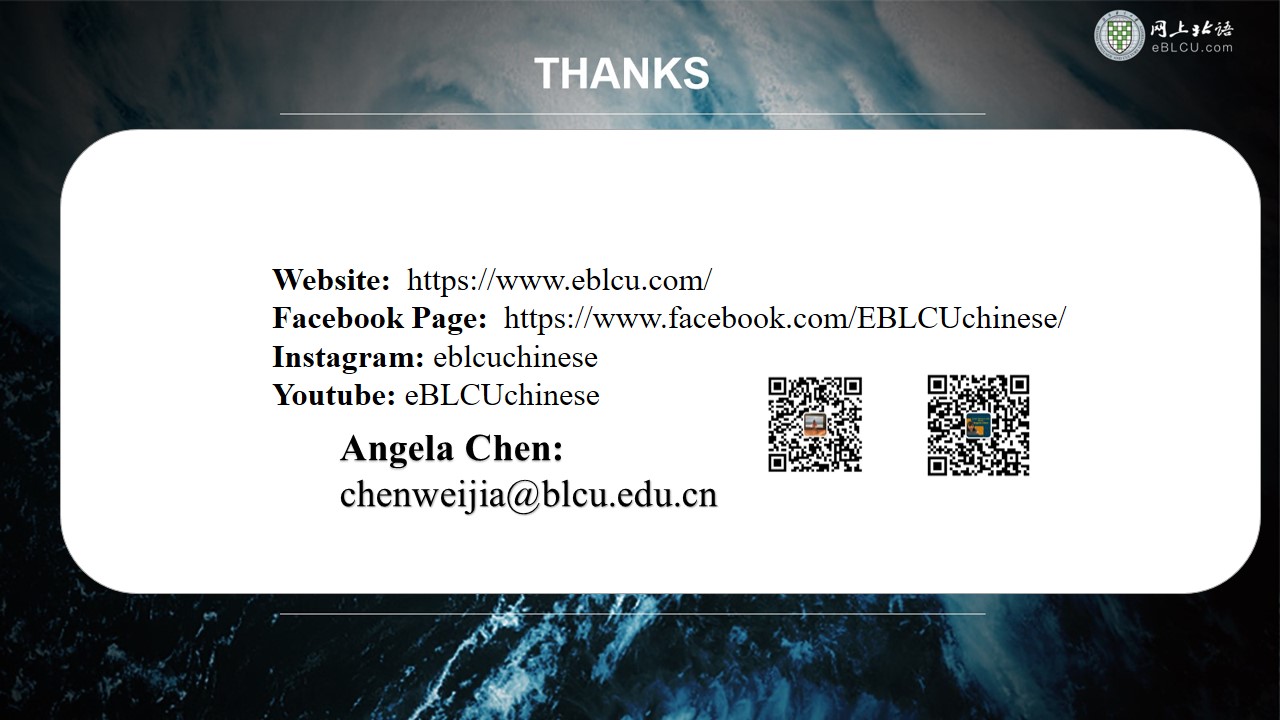北京语言大学网络教育学院
跨境远程国际中文教育平台

北京语言大学网络教育学院
跨境远程国际中文教育平台

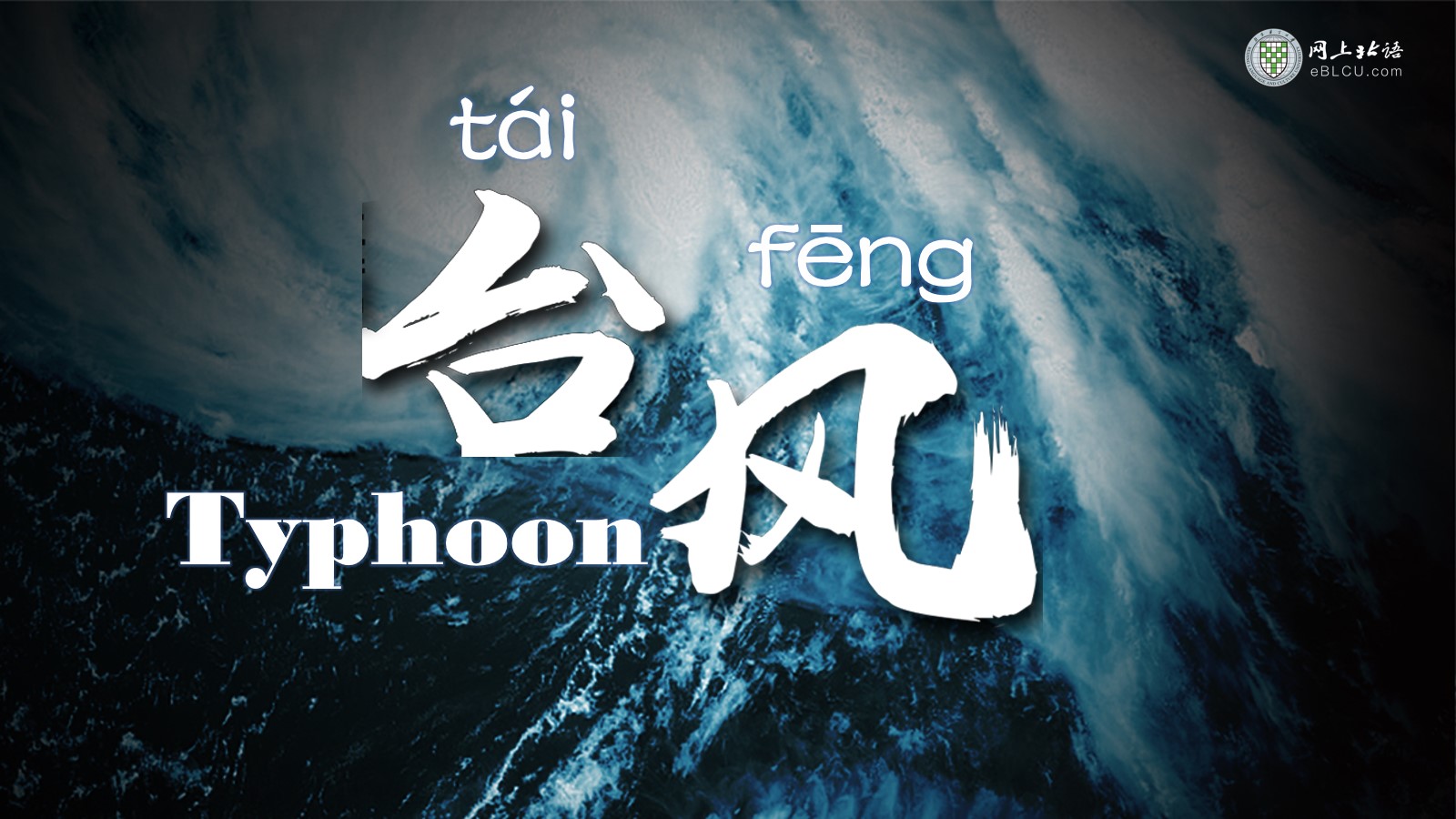
Today I am joined by a foreign friend of mine, Stephen. We would like to talk about some words and phrases related to the recent typhoon. Listen to our potcast:
Typhoon in Chinese is 台风(táifēng). The word typhoon is a foreign loan word from Chinese. And the name for Typhoon Doksuri in Chinese is translated as 杜苏芮(dùsūruì).
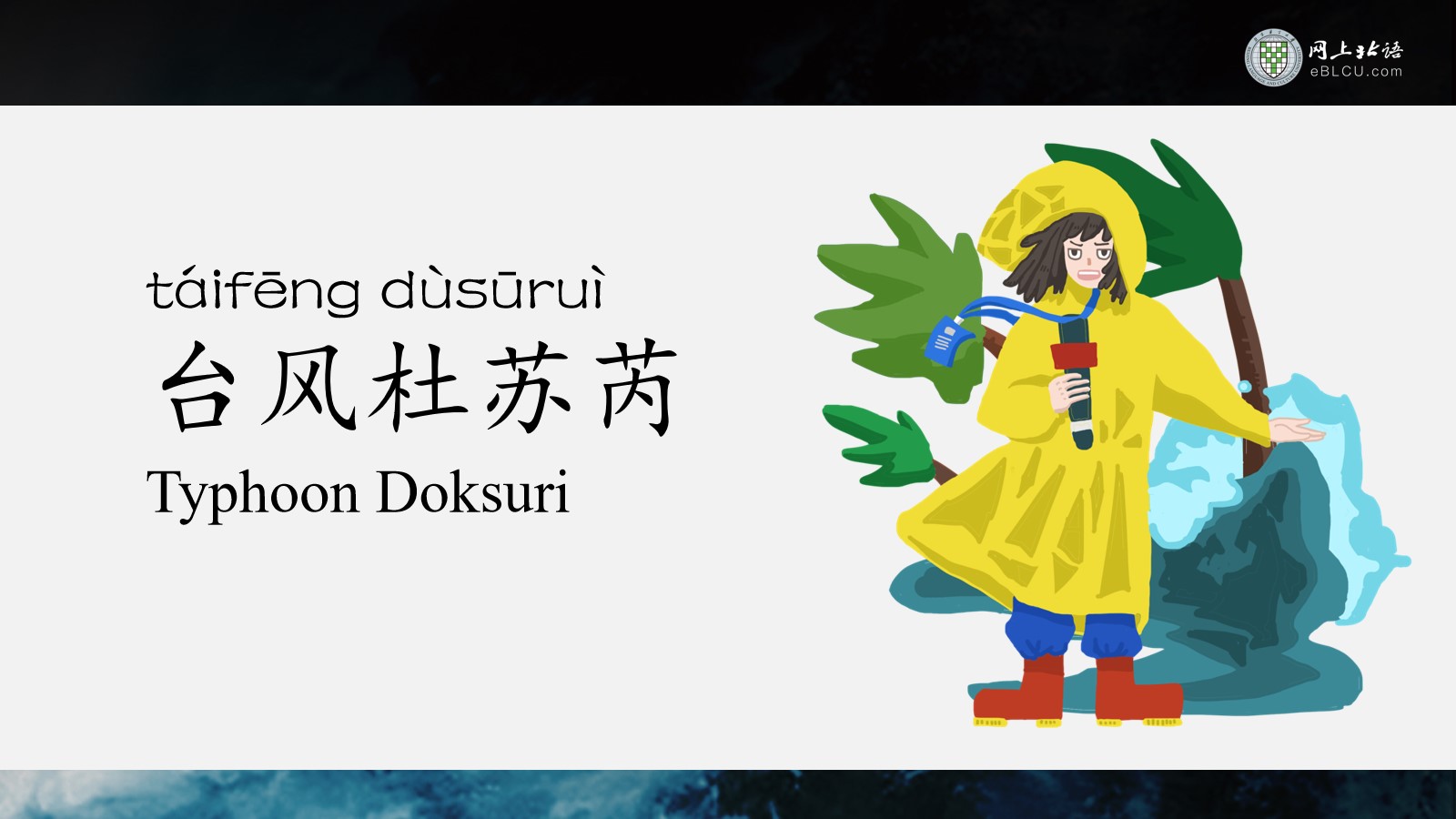
Beijing is an inland city. It is unusual for it to be affected by typhoons.
Nèilù chéngshì
内陆城市an inland city
Běijīng shì nèilù chéngshì.
北京是内陆城市。Beijing is an inland city.
Yánhǎi chéngshì
沿海城市 Coastal city

Zhōngguó hěn duō jīngjì fādá de dìqū dōu zài yánhǎi dìqū, bǐrú shànghǎi, hángzhōu, guǎngzhōu, shēnzhēn, dōushì yánhǎi chéngshì.
中国很多经济发达的城市都在沿海地区,比如上海、杭州、广州、深圳,都是沿海城市。
Many economically developed cities in China are located in coastal areas, like Shanghai, Hangzhou, Guangzhou and Shenzhen are coastal cities.
Beijing is not a coastal city, so typhoons aren’t common there. Many people underestimated the impact of this Typhoon. They didn't expect it to rain so heavily and for such a long period of time.
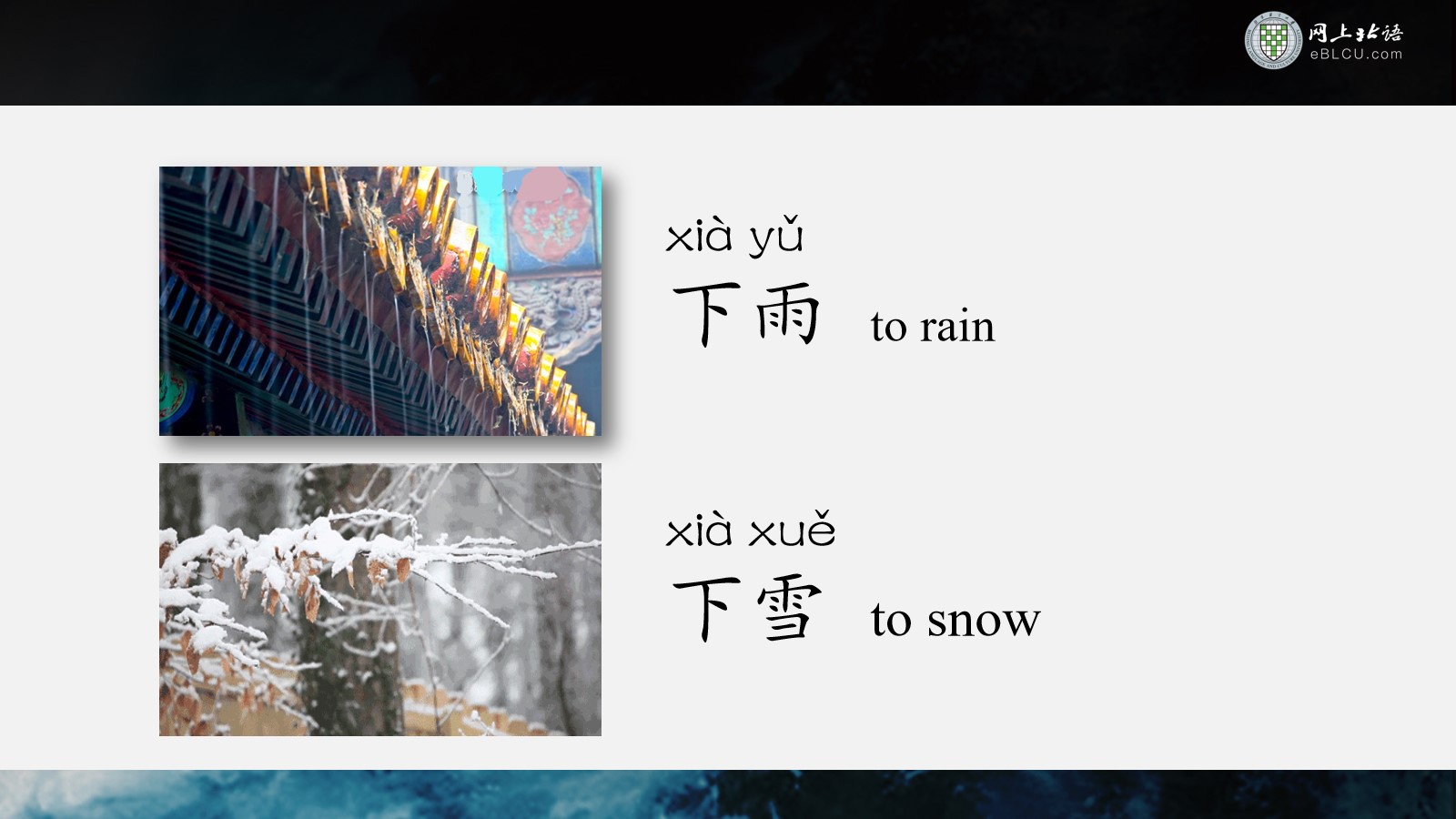
Xià dà yǔ
下大雨
heavy rainfall, hard rain
The noun for rain is 雨 yǔ. The verb we use for “to rain” is下 xià,so we say下雨 xiàyǔ. The same verb 下xià is used with snow. The noun for “snow” is 雪 xuě, the verb “to snow” is 下雪xiàxuě.
For wind, we use the verb 刮guā, meaning “to blow”. For example:
Guā táifēng de shíhou, huì xià hěn dà de yǔ.
刮台风的时候,会下很大的雨。
There is heavy rain during a typhoon.
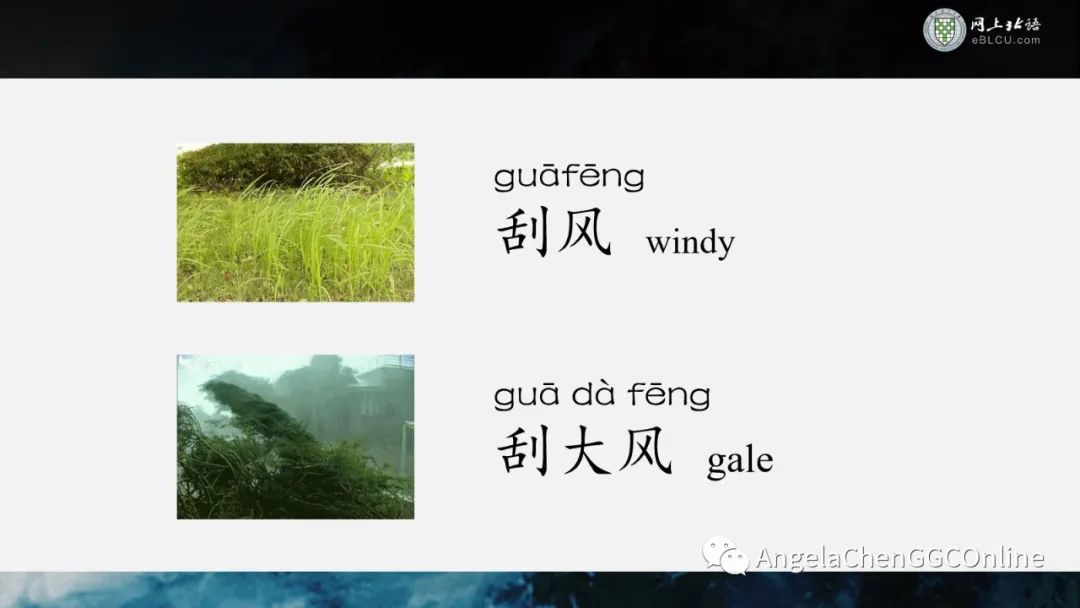
So "刮风guāfēng" would be “windy”, "刮大风 guā dàfēng" would be “a gale”,"刮台风guā táifēng" would be “a typhoon”.
Guā táifēng de shíhou, chúle xià dàyǔ, guā dàfēng, yǒushíhou háihuì dǎléi hé shǎndiàn.
刮台风的时候,除了下大雨、刮大风,有时还会打雷和闪电。
During a typhoon, in addition to heavy rain and strong winds, there can be thunder and lightning, too.
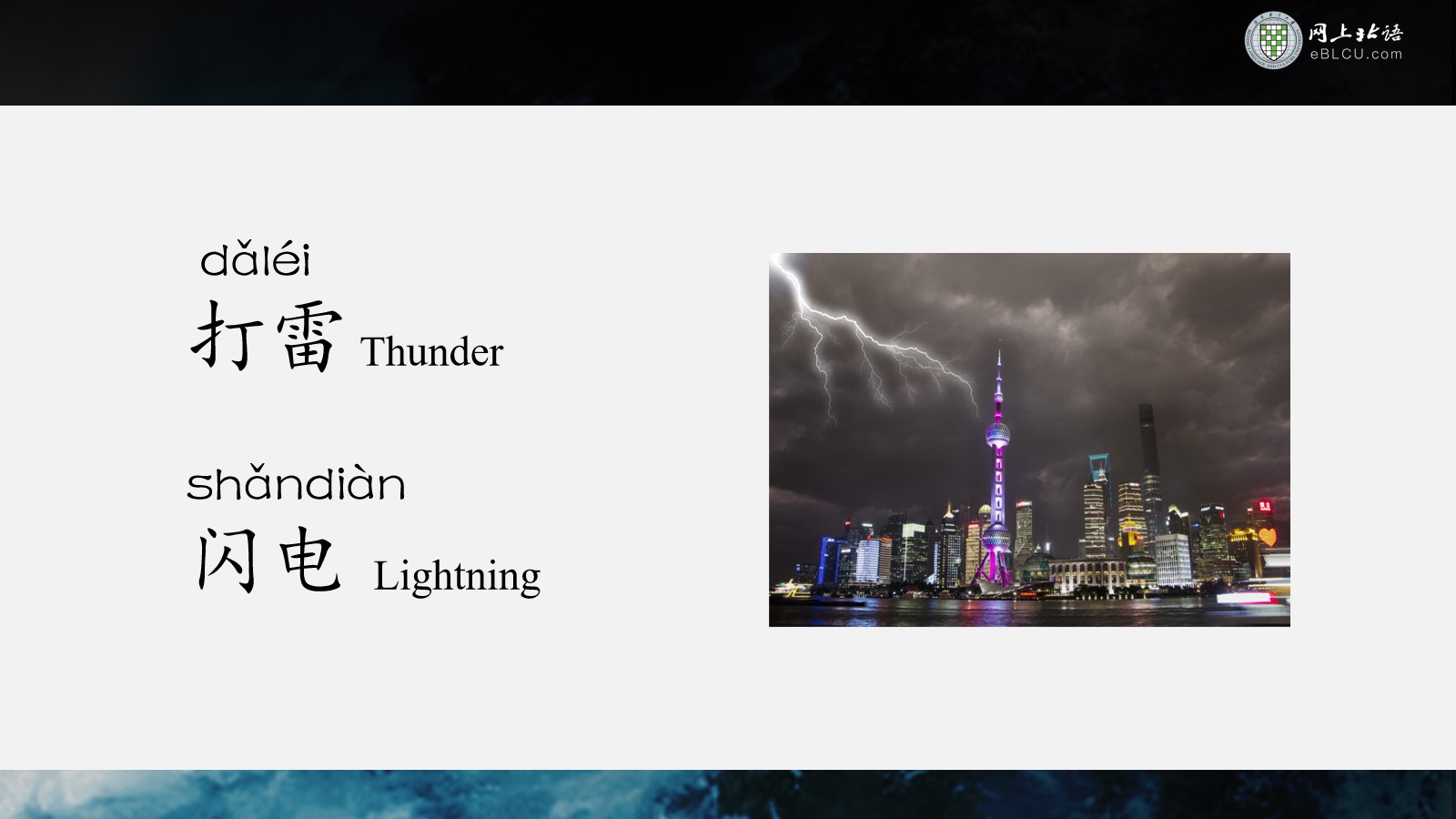
Dǎléi
打雷 Thunder
Shǎndiàn
闪电 Lightning
If it rains a lot in a very short period of time, the land becomes waterlogged.
Jīshuǐ
积水 waterlogged
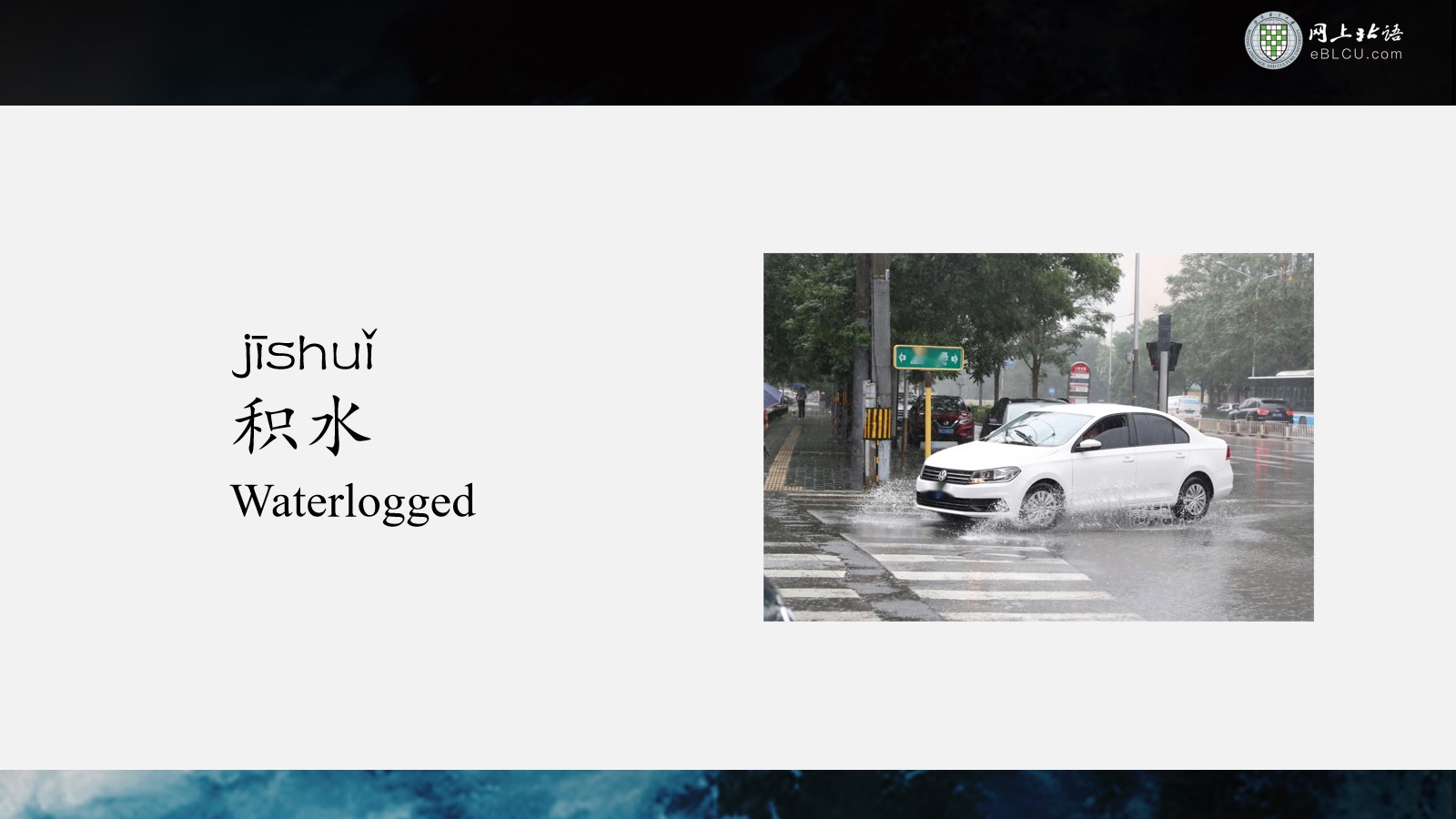
Zhè gè zài běijīng de xiàtiān hěn chángjiàn.
这个在北京的夏天很常见。This is very common in the summer in Beijing.
Beijing is a very dry northern city. It’s dry in the spring, fall, and winter. But it rains often in the summertime. We have a lot of rain and thunderstorms in July and August.
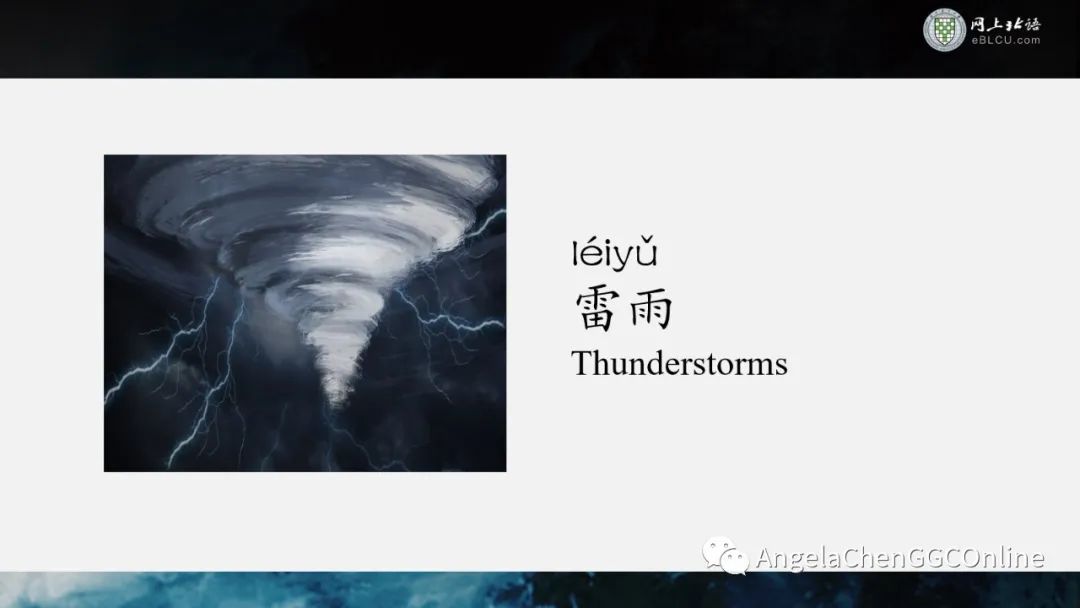
Léiyǔ
雷雨Thunderstorms
It is dangerous if there is heavy rainfall within a short period of time in a mountainous area. There may be mudslides and landslides.
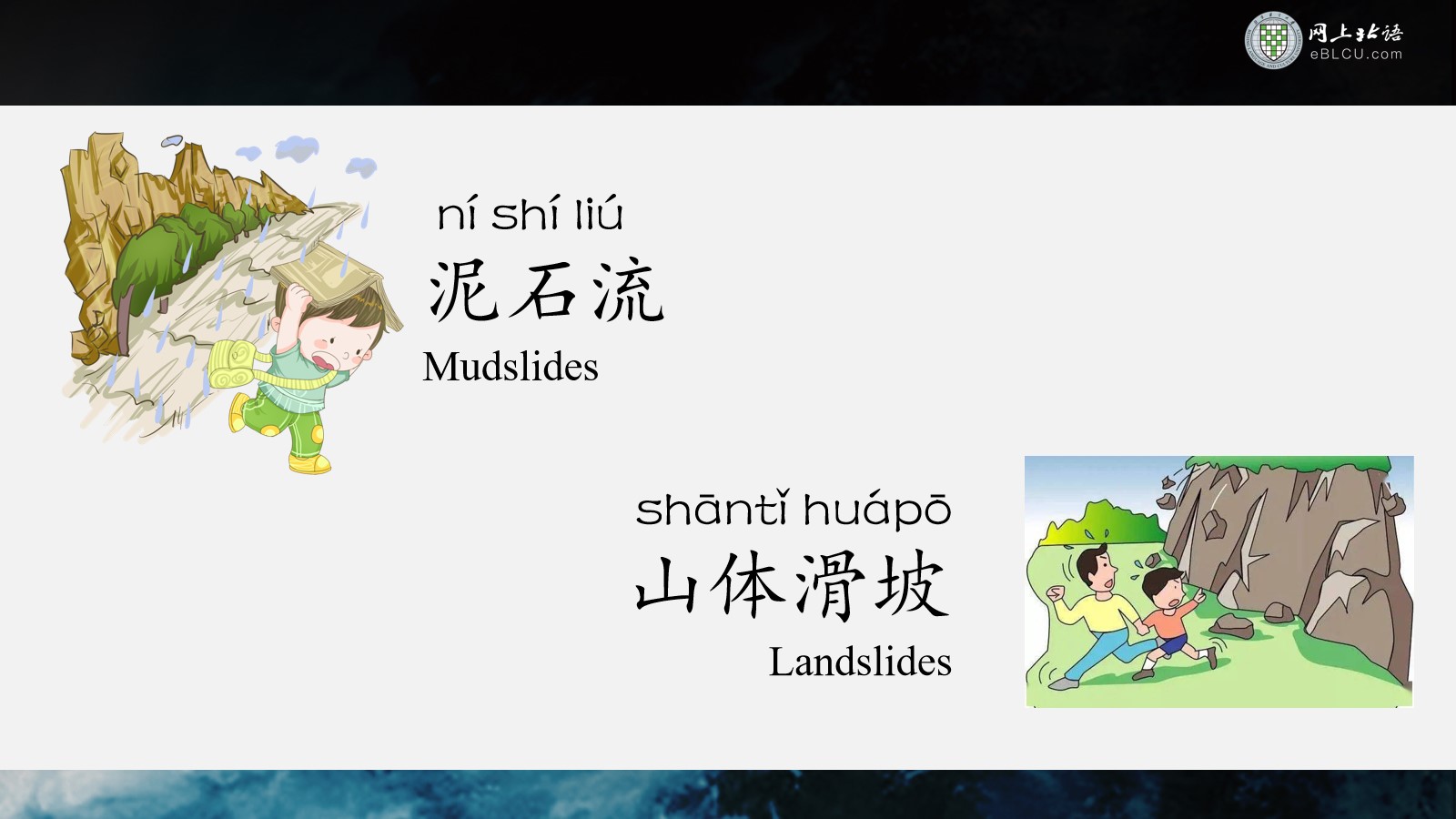
Níshíliú
泥石流 mudslides
Shāntǐ huápō
山体滑坡 landslides
Are there typhoons in your part of the world? What experiences of severe weather have you been through? Feel free to leave a comment and let us know.
Nǐ suǒzài de dìqū yǒu táifēng ma? Nǐ jīnglǐ guò nǎxiē èliè tiānqì? Huānyíng liúyán gàosù wǒmen.
你所在的地区有台风吗?你经历过哪些恶劣天气?欢迎留言告诉我们。
And if you are interested in a systematic course of learning Chinese with our BLCU Chinese teachers, please check here.
